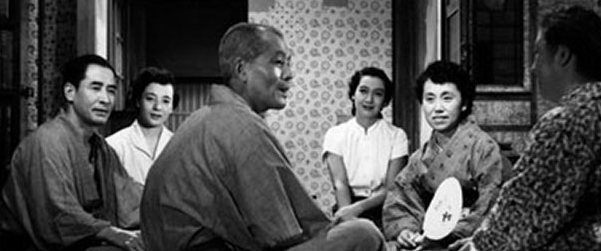When I first came to the US to study film, I was fascinated by how much Japanese culture has been blended into American culture. It was then that I realized why Hollywood culture is called “international culture,” because of the international market for Hollywood films. We basically familiarize ourselves with American perspectives of the world and American culture in our countries. However, there are certain aspects that I could not agree with, and that even though Japan is not a perfect country, I believe Hollywood could learn some from my country. Here are three things that I believe Hollywood films should reconsider from my Japanese point of view.
- Importance of the Group Rather Than the Individual Since the United States is a melting pot, I understand that it is nearly impossible for all Americans to have the same opinion even in one subject. That is why people in United States tend to argue and try to fight for their own ideals. This concept definitely applies to Hollywood films. In the second highest grossing film in the world, Titanic, (Cameron 1997), Jack and Rose try to fight for their love against Caledon. There is nothing wrong with it except for Caledon starts shooting a gun in public when the ship is sinking and people are running around. In World War Z (Forster 2013), there is a scene when people who have been walking for quite a while try to survive by attacking a family for their car. Thus, people are so selfish and the willingness to survive as a group does not exist. They kill for their own gains mercilessly. On the contrary, when the apocalyptic incident actually happened in Japan, Japanese people were selfless, helping one another. In 2011 Tohoku earthquake and tsunami, people voluntarily started helping one another. The ones whose houses survived through the disaster started inviting strangers into their homes and owners of restaurants and supermarkets offered food to strangers. Sure there was nothing we could have done to prevent the earthquake, but aftercare was so remarkable that one may conclude that only the Japanese could revive themselves this rapidly. Is the preservation of individuality so important for United States that it can be a reason to harm others? I think it is a dark concept in Hollywood films. Why can we value people as a whole in films? I don’t know of Hollywood films where the individual puts himself after the group. 2. Mono no aware Mono no aware is a Japanese traditional concept from the seventh century. It means that what we see and what we hear inspire us every day, and that they enrich our minds and develop our character. In postmodern era of filmmaking, Hollywood filmmakers have been attempting to manipulate their own works scene by scene in the name of auteur theory. However, I feel that allowing the audience to find elegance on screen on their own is sometimes a better way to express their films. This concept has been adapted into films by one of the greatest Japanese filmmakers, Yasujiro Ozu. Too much manipulation can kill a film’s natural beauty, and in my opinion, Hollywood filmmakers should apply Mono no aware into their works in order to create art. 3. Value of Political Messages Once a great orchestra conductor told me that great art cannot include any political messages. I don’t agree, but do I think he does have a point, especially when it comes to Hollywood films. Hollywood films tend to rely on political messages too much, and it has been destroying films as an art form. For instance, the recent animated film from Marvel, Guardians of the Galaxy (Gunn 2014), has a message that we should not count on help from our government, but instead stand up by themselves for the greater good. Considering the film is not only for adults but also for kids, it can brainwash the younger audience. Just to be clear, I do not believe it is REQUIRED to have political messages in films, and it is not even preferred to do so. Tokyo Story (Ozu 1953) is one of the greatest Japanese films in history, and that film shows no political agenda. Moreover, Japanese films tend to focus on emotional depth directly, not on surfaced problems like most of the Hollywood films. I believe that films can express both political and non-political messages, and that there are so much more in non-political field for film as an art form. Politics in films should be one aspect of a film, not its entirety. Hollywood filmmakers seem to forget that. Takenori Oue / Film Independent Intern
